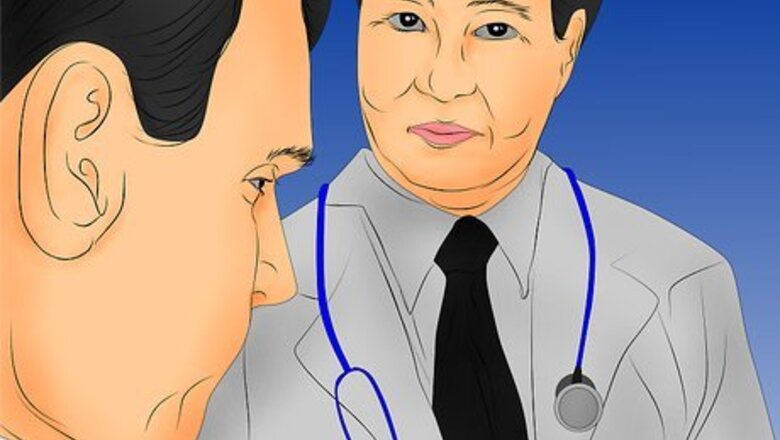
views
X
Trustworthy Source
Cleveland Clinic
Educational website from one of the world's leading hospitals
Go to source
A diagnosis of multiple sclerosis results when no other physical disorders are discovered throughout the testing process.
Looking for Symptoms

Make an appointment with your doctor to discuss your symptoms. Let them know you suspect you may have multiple sclerosis (MS), as well as why. While it's all well and good to try to diagnose MS on your own, the detailed and difficult diagnosis makes it hard for even licensed professionals to achieve certainty. Keep in mind that it may take a long time to receive an MS diagnosis because your doctor will want to rule out other conditions that may cause your symptoms. This might feel frustrating, but it's the best way for your doctor to ensure you get the best treatment possible.
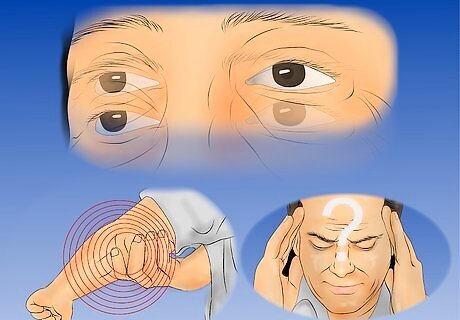
Look for the early symptoms of MS. Many people with MS experience their first symptoms between the ages of 20 and 40. If you come across any of the following symptoms, write them down for you doctor to use in ruling out other possible medical conditions: Blurred or double vision Clumsiness or coordination problems Thinking problems Loss of balance Numbness and tingling Weakness in an arm or leg

Know that symptoms of MS manifest in different ways for different patients. No two cases of MS present in the same way. To this end, you may have: One symptom followed by a respite for months or even years before the symptom presents itself again or a new symptom presents. One or several symptoms in close proximity to one another, with the symptom(s) becoming worse within weeks or months.

Look for the most common symptoms of MS. Many people with MS share similar symptoms, but the condition can present in different ways. Your doctor will want to know which symptoms you have so they can consider possible causes and give you proper treatment. These symptoms include: Feeling pins and needles, but also numbness, itching, burning, or stabbing Bowel and bladder problems, like constipation, frequent urination, suddenly urgent urination, problems emptying the bladder fully, and the need to urinate at night Muscle weakness or spasms, resulting in difficulty walking. Dizziness or lightheadedness Fatigue no matter how much you sleep Decreased sex drive Thinking problems, difficulty concentrating, difficulty retrieving memory, and low attention span Shaking or tremors, making it difficult to do some everyday activities like holding a cup Speech problems in the later stages of MS, such as long gaps between a string of words, slurred speech, or intensely nasal speech Eye problems, usually affecting only one eye, in the later stages of MS Vision loss due to optic neuritis, an inflammation of the optic nerve.
Completing the Diagnosis
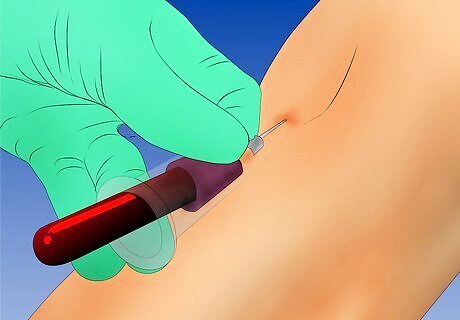
Plan for blood tests that bring your doctor closer to a diagnosis of MS. This happens by ruling out other potential diseases that could be causing the symptoms. Inflammatory diseases, infections and chemical imbalances can result in similar symptoms, providing a red flag but also a false alarm. On top of this, many of these disorders can be effectively treated through medication and other treatments.
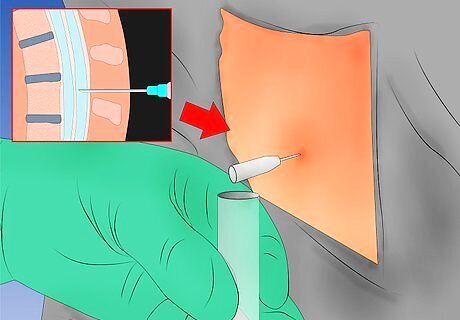
Schedule a spinal tap with your doctor. Although a spinal tap, or lumbar puncture, can be uncomfortable, it is an essential step in diagnosing MS. This test involves the removal of a small sample of fluid from the spinal canal that is taken for analysis in a laboratory. The spinal tap is often a component in how to diagnose multiple sclerosis, because the fluid may show abnormalities in white blood cells or proteins that may indicate a malfunction of the body's immune system and the presence of the disease. This test may also rule out other diseases and infections. You may feel discomfort when the doctor administers a numbing agent to the area, but you shouldn't feel the procedure itself. In order to prepare for a lumbar puncture: Tell your doctor if you are taking any medications or herbal remedies than may thin out your blood. Empty your bladder. Sign a consent form and possibly a medical test information form.v
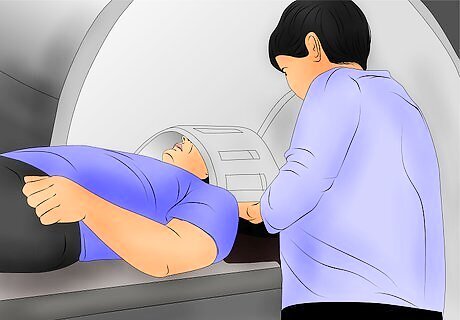
Prepare for an MRI through your healthcare provider or local health care facility. This test, also known as magnetic resonance imaging, uses a magnet, radio waves and a computer to create an image of the brain and spinal cord. This test can be helpful in making a multiple sclerosis diagnosis because it often shows abnormalities or damage in these areas that can indicate the presence of the disease. An MRI is considered one of the best tests used to diagnose multiple sclerosis to date, although a diagnosis of MS is impossible to make using an MRI alone. That's because patients can still register a normal MRI and still have MS.
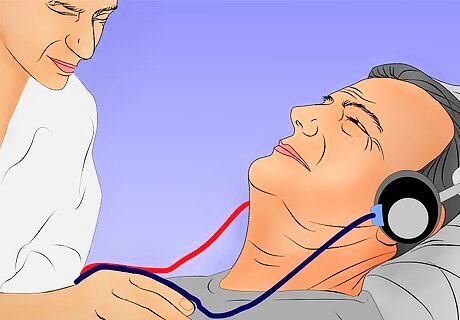
Ask your doctor about an evoked potential test. As doctors are learning more about how to diagnose multiple sclerosis, this test is providing additional information to get an accurate determination of the disease. The procedure is painless and involves the use of visual or electrical stimuli to measure the electrical signals your body sends to your brain. Your doctor will refer you to a neurologist to have your test results interpreted.

Make a follow-up appointment with your doctor. Once all of the tests are completed, your doctor will determine a diagnosis. If they make a diagnosis of MS, they'll then discuss your treatment options for managing the condition. This involves learning to effectively manage symptoms and slow the disease progression. While there is no cure for MS, many people are able to slow its progression and reduce how much the symptoms affect their life. Talk to your healthcare team about what you can expect from your condition.




















Comments
0 comment